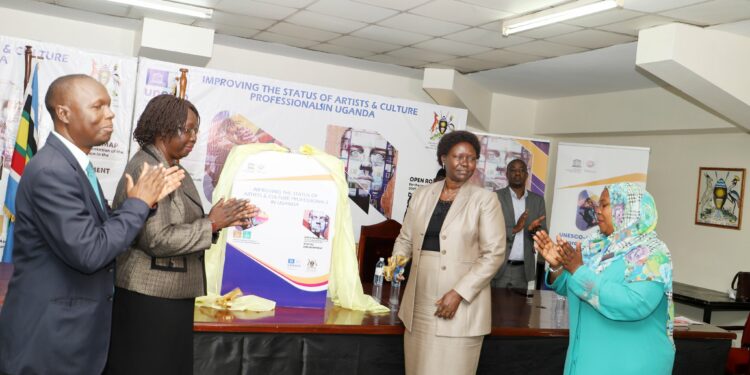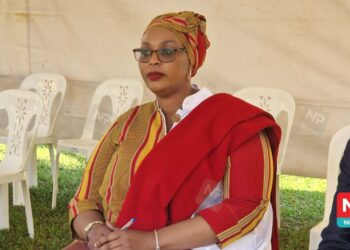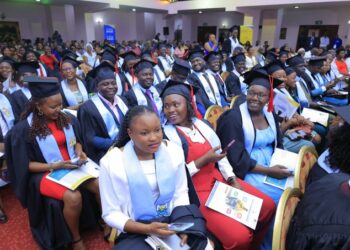The Ministry of Gender, Labour, and Social Development on Wednesday partnered with UNESCO to launch the Aschberg program for artists and cultural professionals and the Open Digital Roadmap Project.
According to the Ministry of Gender, the open digital roadmap project will offer concrete reference activities to protect the means of creation, production and dissemination.
“These projects have been running concurrently since February and are aligned with UNESCO’s statutes and programs on culture, specifically the 2005 Convention on the Protection and Promotion of the Diversity of Cultural Expressions,”announced the Gender Ministry and UNESCO in a joint press release.
Aggrey David Kibenge, the Permanent Secretary at the ministry of Gender, revealed that the Government is committed to promoting culture and creativity industries, saying the two are the fastest growing sectors of the economy. He emphasized the Government’s commitment to promoting culture and creative industries and the vital role of film in communication, education, leisure, and social interaction.
Mr. Kabenge said the Aschberg program aims to strengthen the process of data collection and analysis through comprehensive digital archives and studies on the status of artists.
“The ministry will also work on documenting a new law through consultations with various Government agencies to ensure artists benefit from government programs,”he added.
Naumo Juliana Akoryo, commissioner for Culture and Family Affairs at the Gender Ministry, said the projects will strengthen the process of data collection and analysis. She added that this will help to provide evidence through comprehensive digital archives and studies on the status of the artists.
“Upon implementation, the ministry will ensure that a new law is documented through consultations with a number of Government agencies for artistes to benefit in government programmes,”she said, adding that these programmes will raise awareness of Government policy makers and other stakeholders on the status of the artistes.
Ms. Akoryo further pointed out that the ministry will collaborate with two Ugandan culture industry experts, Amos Tindyebwa, a cultural policy analyst, and Polly Kamukama, a film lecturer at Makerere University, to implement these projects effectively.
Rosie Agoi, the Secretary-General of the National Commission for UNESCO, highlighted the importance of supporting artists, especially women, who often face economic disparities. The projects are expected to boost the cultural sector and create opportunities for the industry’s growth.
Do you have a story in your community or an opinion to share with us: Email us at editorial@watchdoguganda.com













